[Under development.]
The term “transcendence” is related to such common words as ascend or descend, but is used in philosophical and religious writings to mean rising above, or breaking through normal boundaries into a higher level of existence.
A lower-level view of transcendence
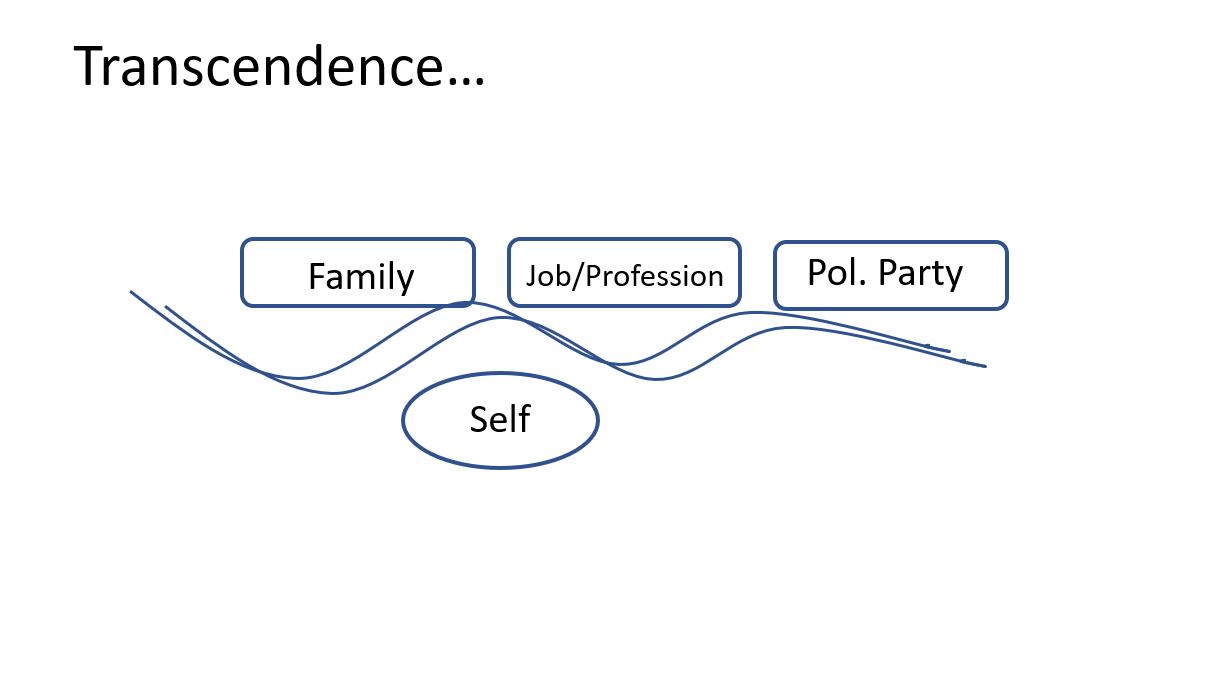
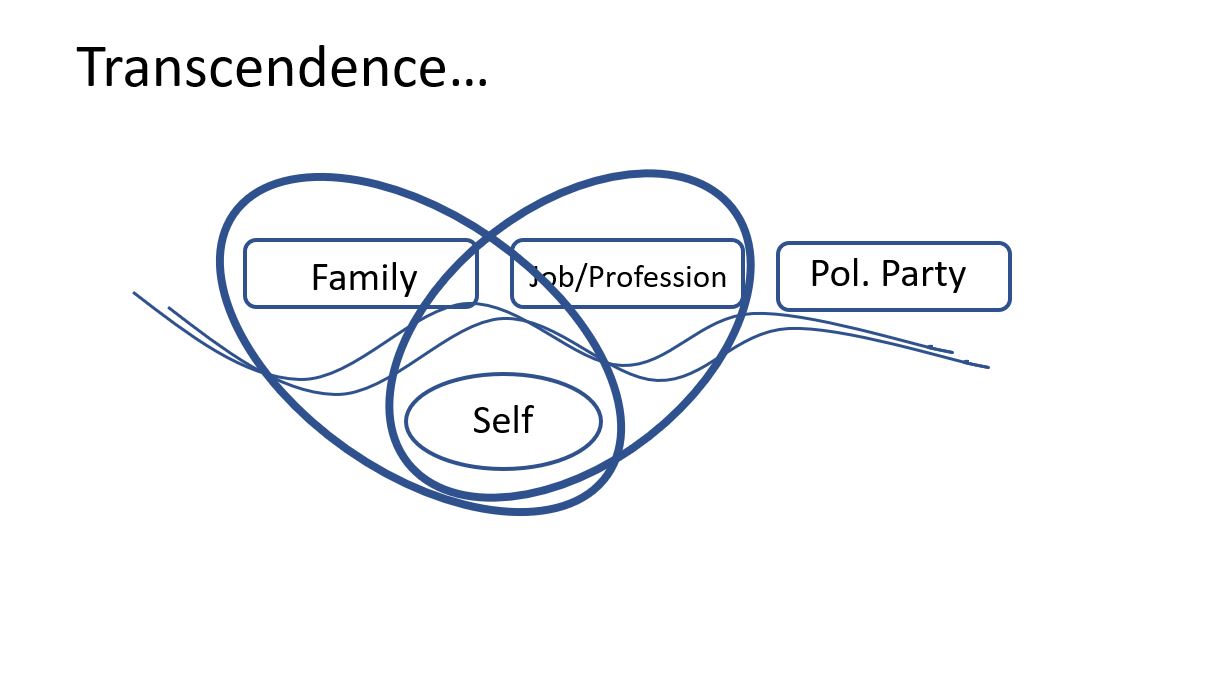
How does “family” drive our lives?
What about our careers?
What about being part of some social or political movement?
What are other examples that “expand our lives” in meaningful/connected ways?
A higher-level view of transcendence
The word transcendence, however, is most often used in discussions of a higher-level (more abstract) search for connectedness. In different cultures around the world, people often feel an “inner drive” for meaning and connectedness which then leads to speculations (imaginations) of what may lie beyond the normal and natural experiences of our lives. This drive for connectedness commonly can commonly extend to the “ultimate” (highest possible) levels, what we may call a search for “universal” and “cosmic” order and meaning.
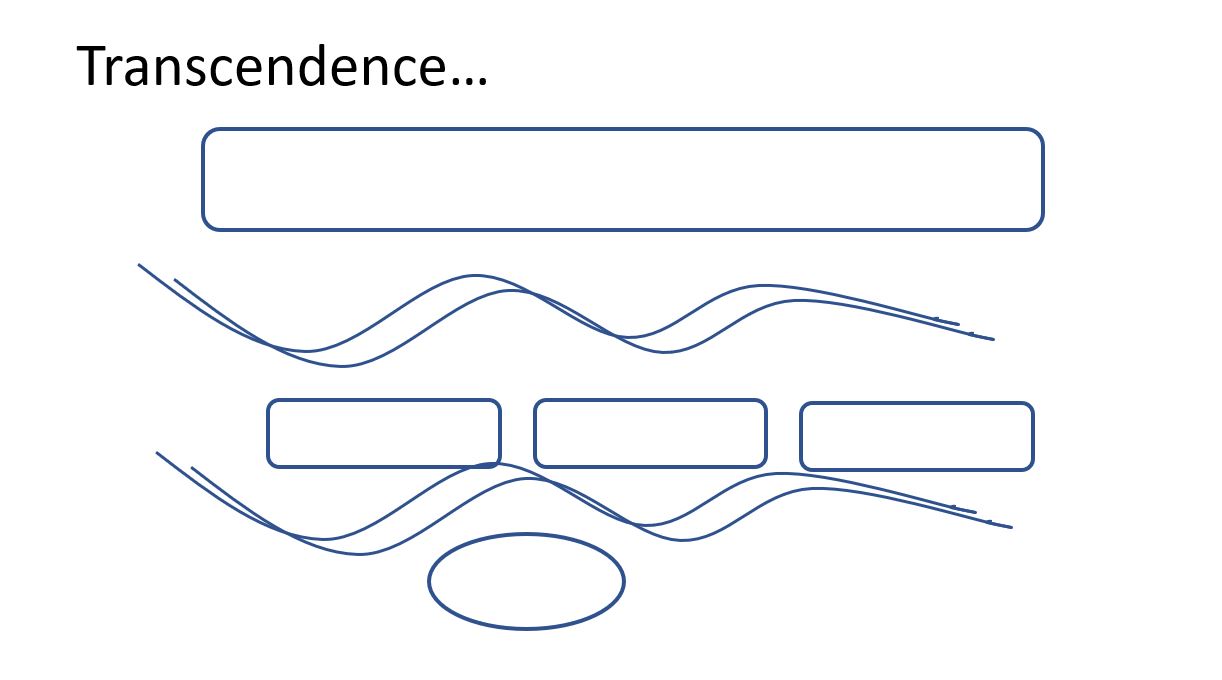
This desire for Meaning and Purpose has been described as something very basic to our “human condition.” Maybe it’s part of our human DNA. We have this built-in interest and desire to connect with the supernatural, and search for “the divine” (that is, “the supreme and ultimate Truth”).
Since this kind of search extends beyond our field of rational understanding, we can only approach it as a matter of the hypothetical (that is, asking “What if … is possible, or true?”). As we reach beyond what is of immediate (near-by) experience, we choose to follow a Path based on Faith and Belief. In the process we look for confirmations of the goodness/rightness of our choice. That is, Does our Faith in God, for instance, help us to understand the world in which we live, and give us more confidence as we move forward? By accepting by faith a view of this transcendent reality, we are choosing a foundation upon which we build a Framework of Meaning. As the parts fit together it gives strength to our lives. This integration of foundational beliefs together with the practical values and commitments of our lives, all build toward a more satisfying life that most people regard has having greater Meaning and Purpose.
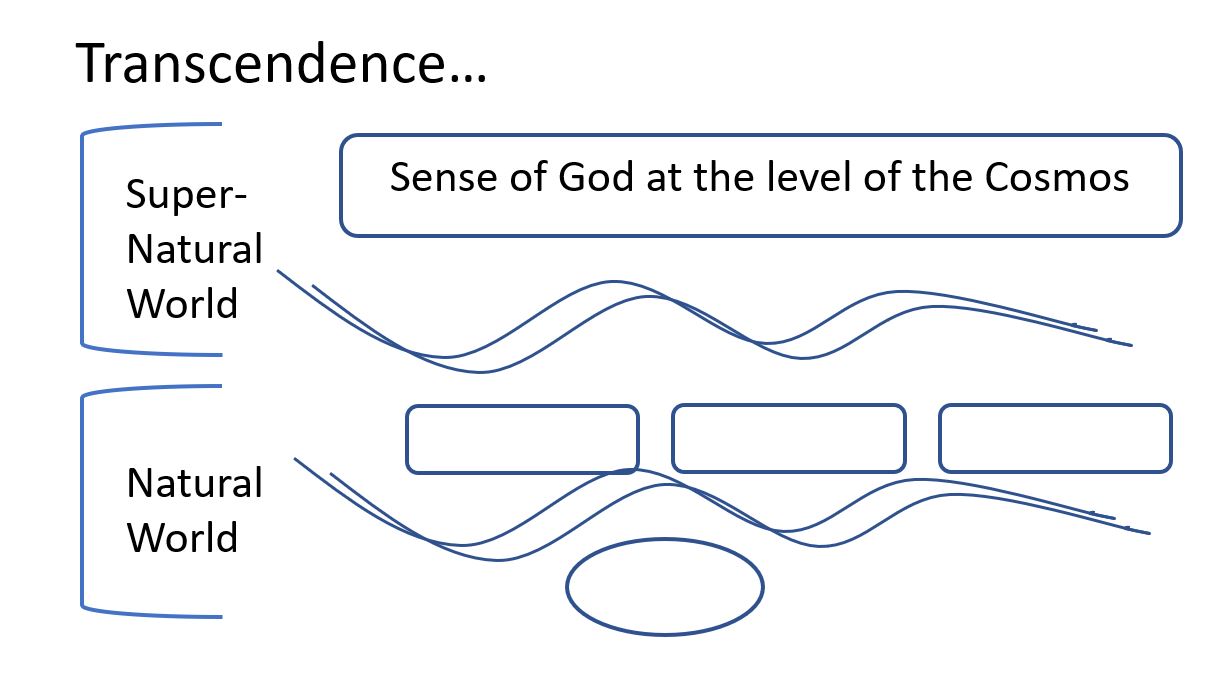
In our search for Meaning and Purpose, we are aware that our bodily senses (of vision, hearing, and so on) can give us certain “earthly knowledge.” As important as that can be, the transcendent search for meaning develops through a “spiritual awareness” that seems to be built into our human nature. It tends to point us forward in the direction of Truth, Justice, and the need to Understand. Indeed, we search for such meaning beyond the limitations of Space and Time.
But this analysis, although a common starting point, can be seen as inadequate and still basically in error. It is a natural starting point beginning with Self and our limited way of thinking. The Christian view demands that we view our Self in this search much differently.
The appropriate God-centered view of transcendence
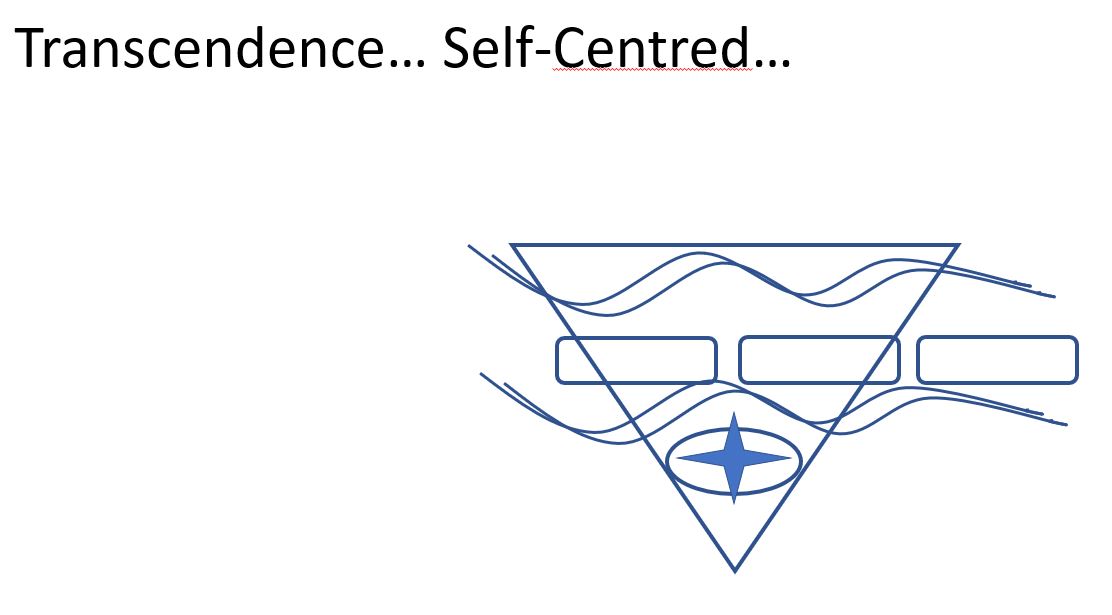
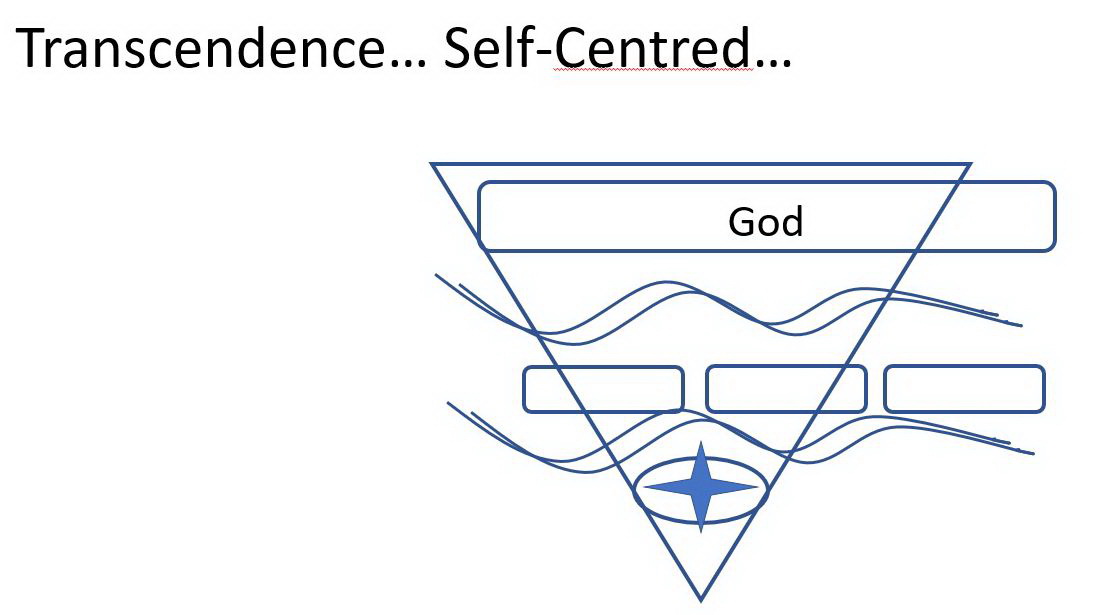
But is God only a human creation? It is a most basic issue, since not all religious ways of thinking about the Supernatural seem to have the same idea. Christians view God as a truly “independent reality” who reveals himself to us in ways that, at times, seem to be very unnatural, confusing, and mysterious. This concept of God, then starts with God himself, and not with Mankind. Some argue that when humans do created their own gods, as seen in many religions, these gods are not so different from us.
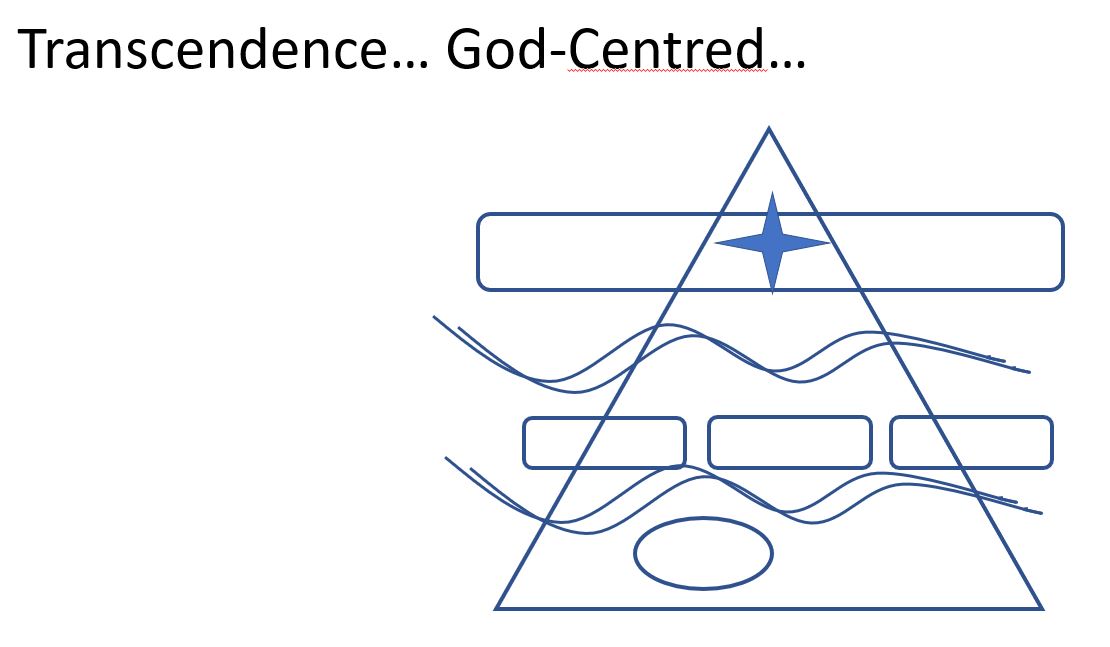
Rick Warren, in The Purpose Driven Life, starts with these understandings about God. We are, from the very beginning, part of a supernatural creation. The answers to our concerns for Meaning and Purpose, therefore, are not something to be created of ourselves, but rather to be discovered as we better understand our relationship to God.
Too often, people look for a god that will meet their personal needs, in a sense that people want a god who will serve them. In contrast, God when clearly understood is the one to whom we will choose to serve. We choose to “join with God” to understand his purpose for the World. We are his “hands and feet” in this life of service. In this we find our meaning, purpose, and life-fulfilment.
First published: 2020/04/08
Latest revision: 2020/04/12